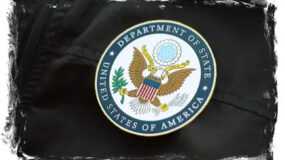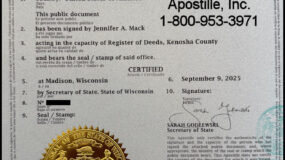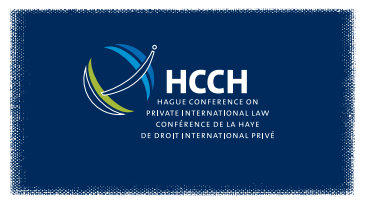 What is the meaning of an apostille?
What is the meaning of an apostille?
An Apostille is simply the name for a specialized certificate, issued by the Secretary of State. The Apostille is attached to your original document to verify it is legitimate and authentic so it will be accepted in one of the countries who are members of the Hague Apostille Convention.
There are currently 117 countries who are members of the Hague Apostille Convention.
In the United States, all 50 states and the Federal Government (US Department of State – Office of Authentication) can issue an Apostille. We have provided an example of every U.S. State and U.S. Federal apostille.
In 1961, many countries joined together to create a simplified method of “legalizing” documents for universal recognition. Members of the conference, referred to as the Hague Convention, adopted a document referred to as an Apostille that would be recognized by all member countries.
For example, if your document requires notarization (Example: Power of Attorney), then the apostille will authenticate the notary’s seal and signature. The notary would be the public official. For vital record documents (Birth, Death, Marriage) the official would be the County Clerk or the State Registrar.
Here is an example of model certificate of an apostille: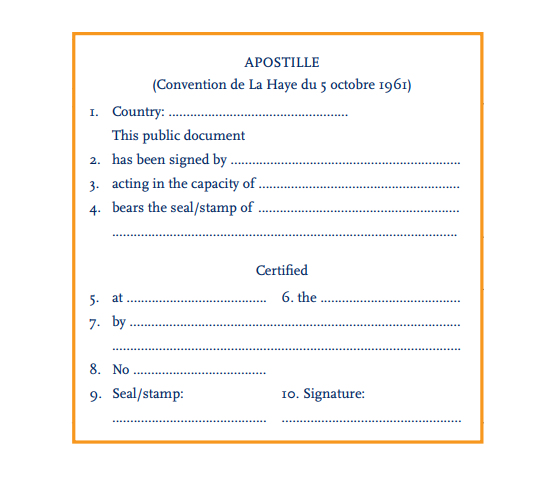 Obtaining an apostille can be complicated and time-consuming. Don’t leave this process to untrained employees or non-professionals who do not fully understand the apostille process and the unique requirements of certain countries. Your paperwork could be rejected costing you time and money. Don’t let this happen to you!
Obtaining an apostille can be complicated and time-consuming. Don’t leave this process to untrained employees or non-professionals who do not fully understand the apostille process and the unique requirements of certain countries. Your paperwork could be rejected costing you time and money. Don’t let this happen to you!
Our staff is available Monday-Saturday from 8am to 7pm to answer your questions and provide you easy to follow-step-by-step instructions. Please call us at 1-888-810-4054 or email: support@internationalapostille.com
 Click the PDF download image to get started. Our apostille service is fast, convenient, and saves you time and money.
Click the PDF download image to get started. Our apostille service is fast, convenient, and saves you time and money.
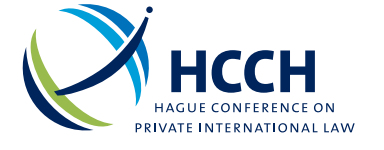 Are you interested to know what is the Apostille Meaning?
Are you interested to know what is the Apostille Meaning?





